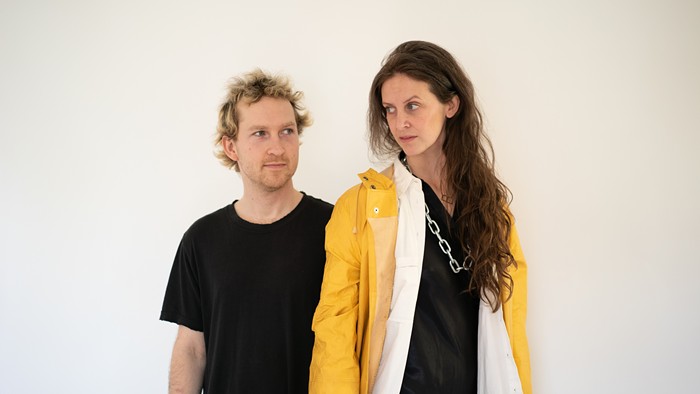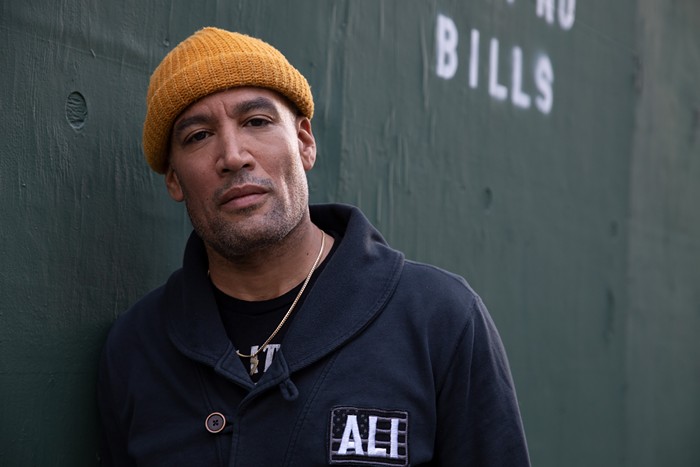The New York Dolls created a sound that didn't exist before they made it. Sure they had some influence from the Stooges and MC5, but by flashing a lethal dose of stripped-down, dirty glam rock spat out by a cross-dressing bunch of misfits in 1971, they get the title of the Empire State's first punk band, beating the Ramones to it by three years. They flamed out after two albums and multiple overdoses, but they left a lasting scar, like a smoldering cigarette burn on the musical landscape that hasn't yet faded.
David Johansen—one of the two surviving members of the band (guitarist Sylvain Sylvain being the other)—is an unlikely renaissance man who can pick and choose his projects, from acting gigs to singing with legendary blues guitarist Hubert Sumlin, writing classical music for the Staten Island Composers Project, or re-forming the New York Dolls and going on tour. So how does one re-create a band when most of the original members are dead? "When we put this band together, we were going to do one show," Johansen explains in his gritty Staten Island accent. "If we had said, 'Okay, we're gonna make a run with it,' then I'd probably still be looking for a guitar player... because you know if you think too much, all you're thinking about is thoughts."
Musically, the Dolls' roots were decidedly un-punk. "In the early days, [the Dolls] sounded like Big Brother and the Holding Company; of all the bands that ever were, that was the fucking band I loved," he says. "All this stuff is there but it busts out of the border, it's not like, 'Okay we're going to take this canvas and fill it up with paint.' There's paint on the wall!" This is where the genius of innovation lies, and it's a perfect analogy for the Dolls' music and more particularly, their live shows.
"I remember when I was like 14, I went to the Murray the K Show and I saw Mitch Ryder and the Detroit Wheels. He came out and just destroyed the place. When I saw him I went, 'That's what you fucking do!'" And they did. They destroyed rooms, speakers, instruments, and ultimately themselves.
So when does someone, who by most calendars might be living on borrowed time, decide it's time to step out of the spotlight? "It's not something that I sit around and get neurotic about," he says. "The beautiful thing about this band is that there aren't any plans, except where we're going next."
But Johansen seems to be of two minds on the subject and admits that the key to longevity lies in a form of moderation. And clearly, he's taken lessons from the past. "The first time we were together, we had a lot of pressure and lack of support, and it would have been nice if someone had said, 'Why don't you boys go home for a couple of weeks and then come back and talk 'bout this?'" he says, referring to the infamous demise of the band in their youth, which raises the question of what presence those ghosts still have in the band and his life today. "Well, they're there, because they're always being referred to by somebody. I don't know if you can miss them if they won't go away."


















